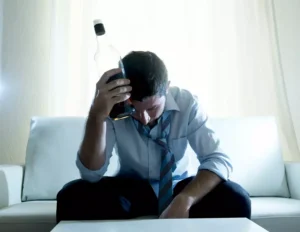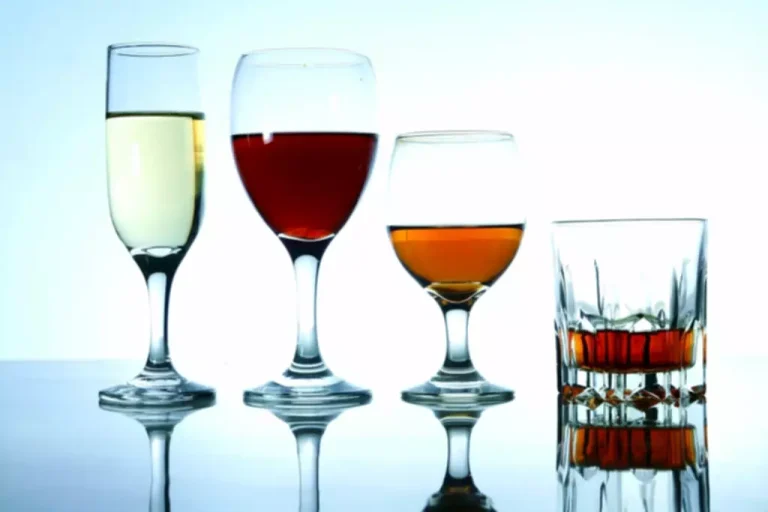Alcoholism and Alcohol Abuse

Once the conversation has been had and the alcoholic in denial is open to acknowledging their addiction, it’s important to offer them support. According to research, family members and friends who assist during this time are more likely to help a person reach long-term sobriety. The disease affects neurochemistry, and alcoholics typically refuse to believe they have an alcohol use disorder. In some instances, their denial causes them to fail to recognize how their substance abuse is affecting their lives. But knowing the behavioral consequences of alcohol addiction can help people understand the disease and help loved ones seek treatment.

Next steps
It’s important to remain calm when confronting your teen, and only do so when everyone is sober. Explain your concerns and make it clear that your concern comes from a place of love. Start by talking honestly and openly with the friend or family member who’s drinking too much. I don’t drink every day OR I only drink wine or beer, so I can’t be an alcoholic. For example, you may blame an ‘unfair boss’ for trouble at work or a ‘nagging wife’ for your marital issues, rather than think about how your drinking is contributing to the problem. While work, relationship, and financial stresses happen to everyone, an overall pattern of deterioration and blaming others may be a sign of trouble.
LinkOut – more resources
Consequently, many people may not realize their drinking has become a genuine problem. “For starters, the media, our workplaces, and many social circles normalize drinking to excess,” says Ruby Mehta, a clinical social worker and director of clinical operations at Tempest. Not everyone who has alcohol use disorder hides or denies they misuse alcohol. No matter the reason behind your loved one’s denial, help is available.

Stop drinking
“Rehab” appeared on the album Back to Black (referring to the abyss of depression she experienced) which eventually sold 16 million copies. Unconditional love and encouragement will go a long way in helping your loved one find freedom from alcoholism but, ultimately, the desire to change has to come from within. Table 2 presents results predicting AUD proband denier status using a backwards elimination logistic regression analysis that included variables that differed significantly across deniers and non-deniers in Table 1. Four variables contributed significantly to the analysis including three of the criteria predicted in Hypothesis 5 along with a SUD on illicit drugs other than cannabis. So, when supporting your loved one, it can be beneficial to lead with love, compassion, and understanding. If they’re not receptive, keep trying — and set boundaries to protect your own well-being.
Support Your Recovery
Support groups, such as Alcoholics Anonymous, can play a vital role in maintaining long-term sobriety. These gatherings provide a safe space for people in recovery to share their experiences, learn from their peers, and establish a support network that will aid them in their journey toward self-care and sobriety. Engaging in self-care practices, avoiding enabling behaviors, and ensuring effective communication can significantly improve your quality of life and potentially influence your loved one positively. Often, individuals in denial will rationalize their excessive drinking by attributing it to stress or using it as a means to celebrate or relax.

AUD symptoms
It’s a good idea to ask questions, let the person with AUD lead the conversation, and avoid judgment and accusations. This can help the person with AUD feel more at ease and might help them accept that they need treatment for their alcohol use. You, too, might realize that your relationship with alcohol is negatively affecting your life. It’s important for you and others involved in helping your loved one to understand and view alcohol use disorder as a long-term health condition, just like you do high blood pressure or diabetes. Some people with alcohol use disorder hide or deny they have difficulty with alcohol use. There are many reasons why someone would do this, like fear of societal rejection or being “blamed” for their condition.

How to Stop Self-Medicating Depression, Anxiety, and Stress
- I don’t drink every day OR I only drink wine or beer, so I can’t be an alcoholic.
- Stress, obligations, trauma, abuse, or any other number of negative circumstances can seem like an acceptable reason to pick up a bottle or have a drink.
Defining and adhering to clear boundaries around their drinking behavior protects their mental and emotional health and helps the alcoholic confront the consequences of their actions. Gently introduce the idea of seeking professional assistance, providing information on local resources and treatment options. Understand that denial is a common defense mechanism and be prepared for it. The road to acceptance and recovery is often long, requiring patience and persistent support regardless of their initial response.
- Encouraging loved ones to seek professional help from a therapist or psychiatrist who specializes in both alcoholism and mental health can be an effective way to address both issues and support their journey towards recovery.
- The first interview following their 18th birthday included the impulsivity and sensation seeking questionnaires, and, for those with experience with drinking, the SRE.
- Many individuals may not realize the severity of their drinking problem.
- Binge drinking can also lead to alcohol poisoning, a serious and sometimes deadly condition.
- Expressing your care and concern is crucial, as is encouraging them to consider joining support groups or seeking medical advice, underscoring the benefits these steps could offer in their recovery journey.
The Role of Education in Alcoholism Awareness
- It may be difficult for someone who is in denial about their addiction to be willing to seek out some of the treatment options listed above.
- Denial can become a sort of defense mechanism for them, allowing them to continue on this destructive path.
- When someone with a substance use or alcohol use disorder is in denial, it doesn’t mean they can’t see the way they’re using alcohol and drugs.
Approaching them may feel foreign or uncomfortable, which is why some choose to reach out to mental health or addiction specialists for guidance. There are unique professionals that conduct interventions, and those individuals can be extremely helpful in these processes. Someone in the throes of an alcohol addiction may refuse to acknowledge the connection between their problems and drinking.
How Rehab Can Help Alcoholics in Denial
This can keep your loved one aware of the steps they can take when they feel ready to seek help and ensure that support and advice are always at hand. While you should not put too much responsibility on yourself to help an alcoholic in denial to see the truth, it’s natural that you may want to do anything you can to help. Knowing what else to look for can help you to break through the barrier of denial and convince your loved one that they have an alcohol addiction. Completely refusing to discuss the issue Alcoholism and Denial and avoiding the subject entirely is another sign of denial in alcoholism.
More in Addiction
We are available to explore addiction treatment options that can help you or your loved one get the assistance needed to start recovery. A person that exhibits a number of these symptoms is likely to be struggling with an alcohol use disorder and would benefit from a treatment program. Another form of defense can happen when a person struggling with addiction creates a group of people that allows them to continue to believe that their drinking is not a problem, nor the cause of their hard times. Being dishonest or lying about alcohol consumption is pretty common with alcoholism. It cuts off the possibility of positive change, leading to a lifetime of issues with health, finances, and relationships. People with alcohol use disorder sometimes have reduced capacity for organizing and analyzing available evidence to draw a conclusion.
